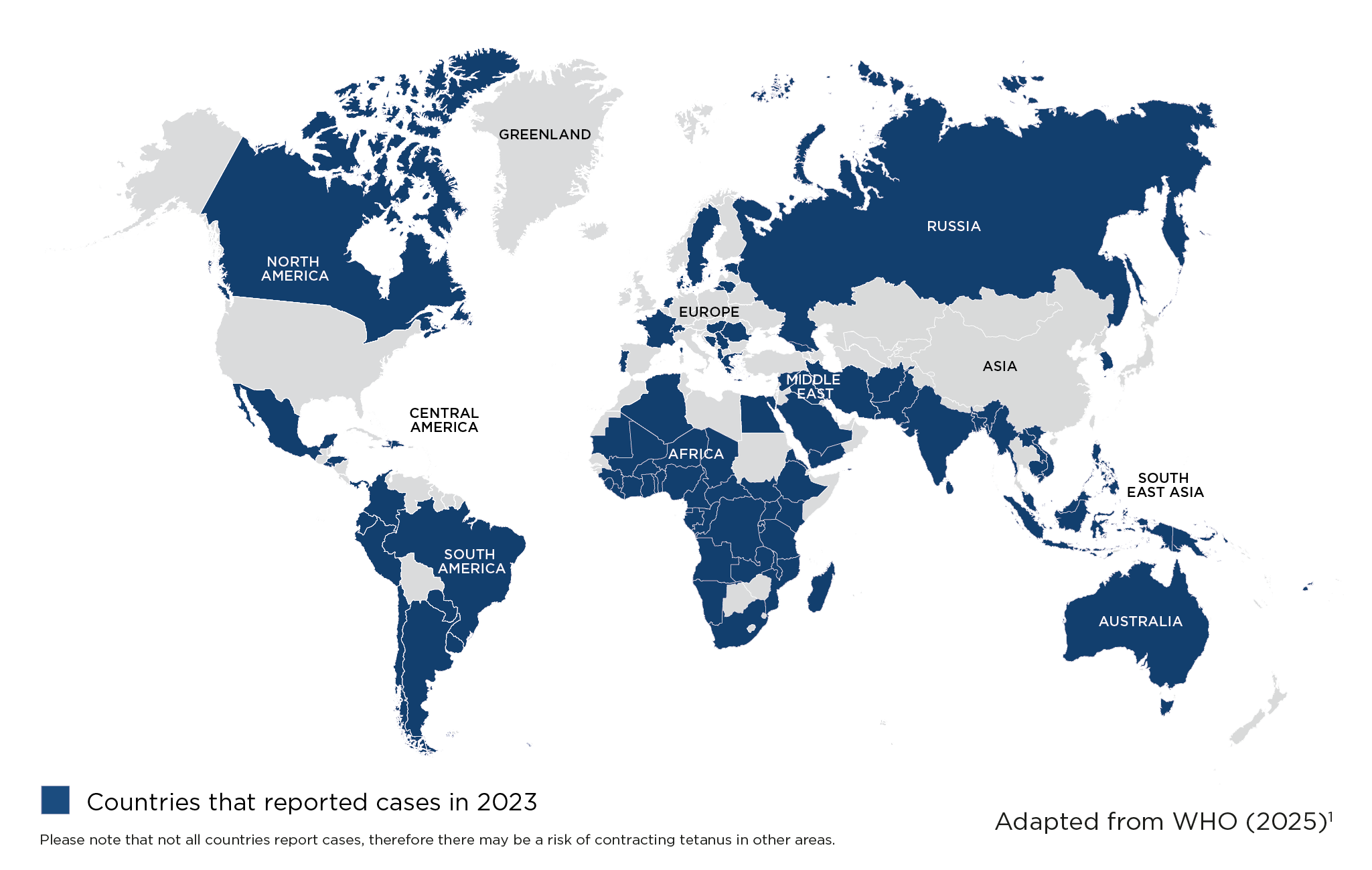Tetanus is rare, but the chances of getting it are higher if you have not been fully vaccinated.2
Risk areas for Tetanus

FAQs
-
Key fact
-
How do you get tetanus?
Tetanus bacteria gets into the body through a skin wound, such as a scratch, burn, or animal bite. You can also catch the disease through unhygienic practices in hospital, eye injuries and burns.2-4
-
Which countries are affected by tetanus?
Tetanus is found across the world, but some countries have higher incidences than others (see map).1,3
-
What are the symptoms of tetanus?
Symptoms include: stiffness in the jaw muscles, painful muscle spasms that can affect swallowing and breathing, fever, sweating and rapid heartbeat.2
-
How serious is tetanus?
Tetanus can be considered a medical emergency if some key symptoms appear.2,4
-
Can I prevent getting tetanus?
You can take the following precautions to help reduce your risk of infection:
- Visit your nearest convenient pharmacy or specialist travel health clinic for a risk assessment before your trip
- Cleaning any new wound thoroughly will reduce the risk of infection but seek medical advice if you have a deep wound, there’s dirt or something inside the wound or if you are not sure if you have been vaccinated against tetanus2-4
Ready to get started? Check now for your nearest travel health clinic.
Get friendly advice from the UK's largest network of travel clinics*.
* This list is not exhaustive and other travel health providers are available.
References
- World Health Organization. The Global Health Observatory. Total tetanus – number of reported cases. July 2024. Available online: https://www.who.int/data/gho/data/indicators/indicator-details/GHO/total-tetanus—number-of-reported-cases (Last accessed May 2025)
- NHS. Conditions. Tetanus. May 2023. Available online: https://www.nhs.uk/conditions/tetanus/ (Last accessed May 2025)
- World Health Organization. Weekly Epidemiological Record. Tetanus vaccines: WHO position paper – February 2017. Available online: https://iris.who.int/bitstream/handle/10665/254582/WER9206.pdf?sequence=1 (Last accessed May 2025)
- NaTHNaC. Topics in Brief. Tetanus. Available online: https://travelhealthpro.org.uk/disease/168/tetanus. (Last accessed May 2025)
UK-BOTB-2500023 May 2025
